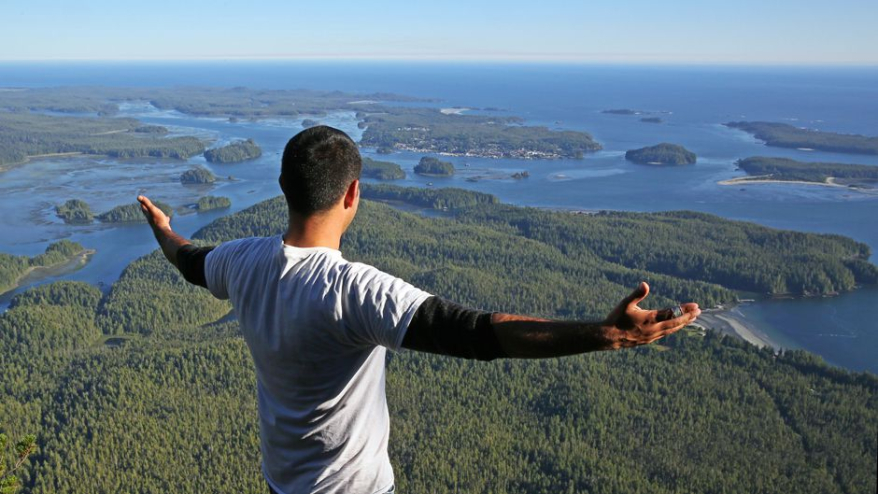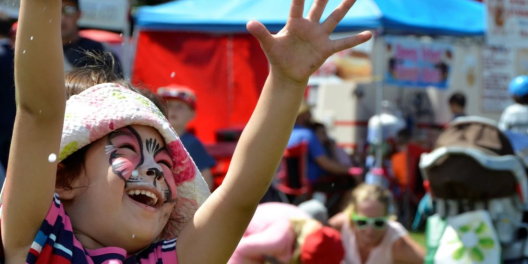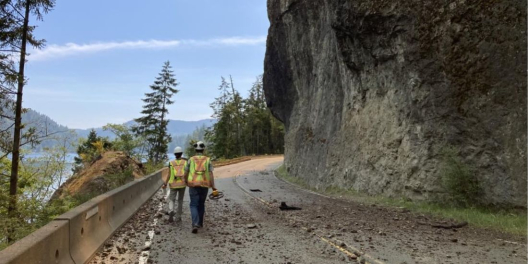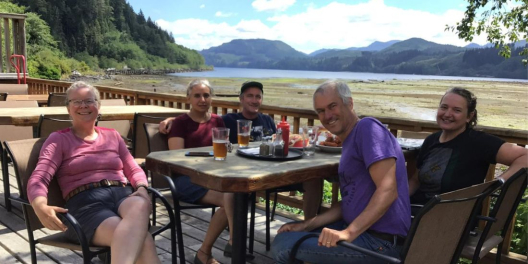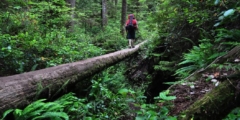Two organizations are teaming up to help strengthen the bonds between tourist-based businesses and First Nations on Vancouver Island. The group formerly known as Tourism Vancouver Island (now called 4VI) and Allied Partnerships have taken the lead in filling this gap.
When tourism booms on the traditional territory of an Indigenous culture, then that culture should benefit.
It makes sense. But too often in the past, that’s not been the case.
Nearly 1.2 million tourists visit Tofino and the Clayoquot Sound region annually.
In Tofino alone, tourism supports an estimated $230 million in GDP and $400 million in total economic output.
However, for years the Tla-o-qui-aht First Nation, on whose unceded territory much of this tourism economy thrives, mainly was a bystander.
They received few economic benefits from tourism yet bore many impacts–from inflated housing costs and busy roads to pressure on community infrastructure and the environment.
In 2014, realizing that tourism would continue growing, the Tla-o-qui-aht First Nation declared their entire traditional territory the ƛaɁuukwiatḥ (Tla-o-qui-aht) Tribal Park.
This process began in the early 1990s when the nation went to court to protect Meares Island from logging.
The Tla-o-qui-aht demanded a seat at the table to help shape a socially and environmentally sustainable future for tourism. They wanted to ensure their community members benefitted.
But it was also about telling an authentic story beyond just the pretty postcard version.
Yes, Pacific Rim National Park Reserve and Clayoquot Sound Biosphere Reserve are wild and wonderful, and the Tla-o-qui-aht welcome visitors to their territory.
However, this popular destination has been the home of Nuu-cha-nulth people – the Tla-o-qui-aht, Ahousaht and Hesquiaht – for thousands of years.
European contact and colonization hugely impacted their cultures, traditions and lives. “That’s part of the story that tourists should be hearing,” said Julian Hockin-Grant, founder of the consulting firm Allied Partnerships.
“When I first started working with the Tla-o-qui-aht in 2016, they were looking at how to turn the tribal park into a fruitful relationship with local tourism operators,” Hockin-Grant said. “They were also struggling to pay for the guardian stewardship program.”
In 2018, Allied Partnerships and the Tla-o-qui-aht First Nation launched Tribal Park Allies.
This innovative program invites businesses and organizations to sign a protocol agreement that commits them to contribute a one percent Ecosystem Service Fee to ƛaɁuukwiatḥ Tribal Parks. A one percent levy is typically added to the cost of an excursion, surf lesson, or hotel stay. These fees are turned over to ƛaɁuukwiatḥ Tribal Parks.
Each Tribal Park Allie also agrees to educate guests and customers about the history and politics of the tribal park.
The program started with 30 allies. Today more than 100 Tofino tourism-based businesses and organizations are Tribal Park Allies. Last year the program generated $277,000 in Ecosystem Service Fees.
”We want to keep growing that number,” Hockin-Grant said.
Saya Masso, natural resource manager for the Tla-o-qui-aht First Nation, said the funds are mainly used to hire and pay the salaries of Tribal Parks Guardians.
“They play an important role in monitoring and stewarding the Tribal Parks that benefit the whole region,” Masso told Ha-Shilth-Sa.
Guardians also build and maintain trails, work with the Central Westcoast Forest Society and the Coastal Restoration Society on salmon and restoration projects and remove derelict boats and abandoned aquaculture gear.
4VI hopes this pioneering partnership will be a model for other First Nations on Vancouver Island wanting to get more involved and benefit from tourism.
That’s why 4VI is supporting the work of Allied Partnerships and Hockin-Grant with a $25,000 grant as they explore opportunities with other First Nations.
Brian Cant, VP of Business Impact and Engagement for 4VI, views it as a simple yet impactful model.
“Nobody thinks twice about paying $3.50 for a cappuccino. So for less than the price of a coffee, a visitor to Vancouver Island can make a positive difference in an indigenous community.”
